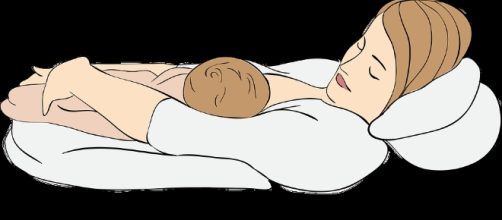breastfeeding is when a baby takes milk from his/her mother. Although all properties of breast feed are not known, it has the perfect combination of fat, sugar, water, and protein required for baby's growth and development. It also fulfills the baby's thirst. Breast Milk consists of nutrients from mother's blood stream and fat reserves from her body. An average of extra 500 calories daily are needed for a mother to produce breast milk.
Benefits of breastfeeding
According to a WHO survey, globally more than 800,000 infants lives could be saved by increasing breastfeeding as it lowers the risk of respiratory tract infections, diarrhea, asthma, food allergies, celiac disease, type 1 diabetes, and leukemia.
Furthermore, breastfed babies have lower chance to be overweight in adulthood and they are more intelligent when compared to formula fed babies. The average weight of a breastfed baby doubles in the first five to six months after birth. Additionally, mothers who breastfeed their babies are less vulnerable to breast cancer, ovarian cancer, cardiovascular disease and rheumatoid arthritis.
Health experts suggest nursing should be initiated within an hour following the baby's birth and continue it for the first six months. After six months, when the baby starts on solids, depending on the mother's circumstances she can continue until the bay turns two-years-old. Exclusive breastfeeding also reduces the chance of pregnancy during the first six months as it delays the resumption of ovulatory cycles.
Scores of mothers feel joy and contentment due to the release of 'happy' hormones while breastfeeding. These hormones include Prolactin which helps to keep the parent relaxed and in turn helps the mother to focus on the child. Another hormone is Oxytocin which helps to bond mother and baby.
Mothers who breastfeed their babies have a lower chance of getting postpartum depression and blood loss after delivery. Additionally, it aids with weight reduction after Child Birth.
Food to avoid while breastfeeding
According to Mom365, moms who breastfeed their babies do not need to be too conscious about food intake during breastfeeding but they should be aware of foods that limit milk production. Consumption of these foods should be avoided while nursing: Alcohol, peppermint, parsley, sage, caffeine, and fish (only eat fish with low mercury levels such as salmon, tilapia, shrimp, and tuna ).


